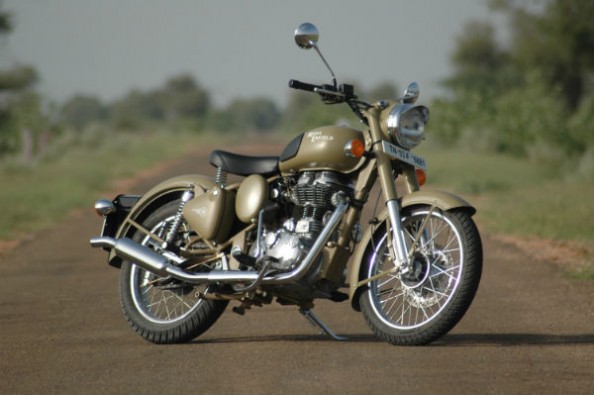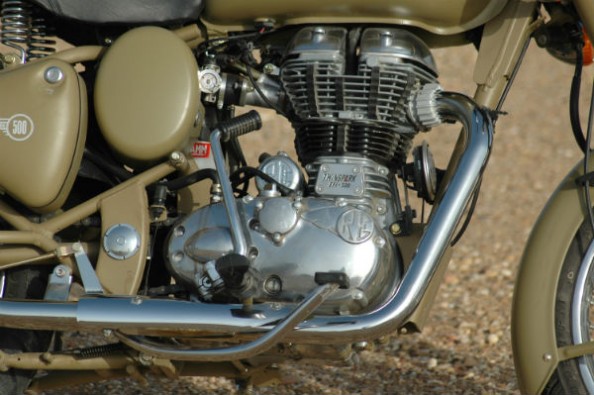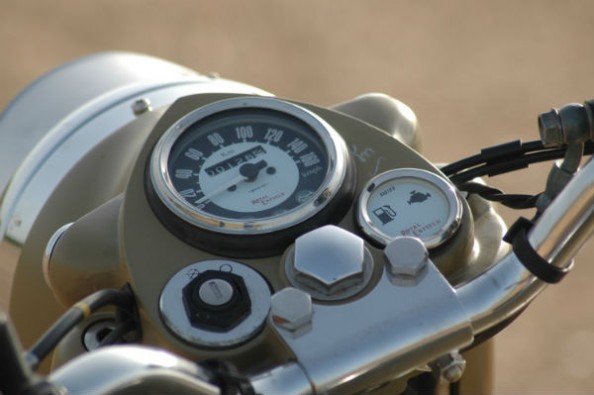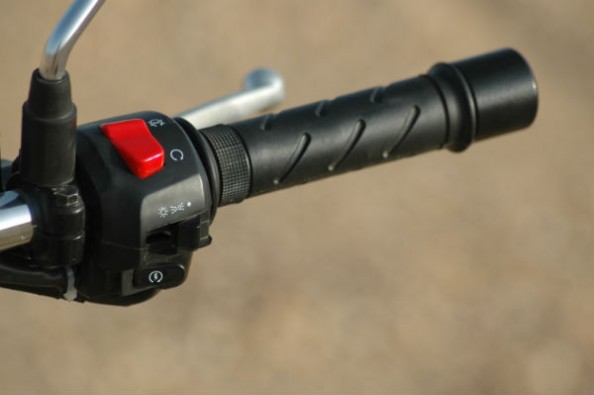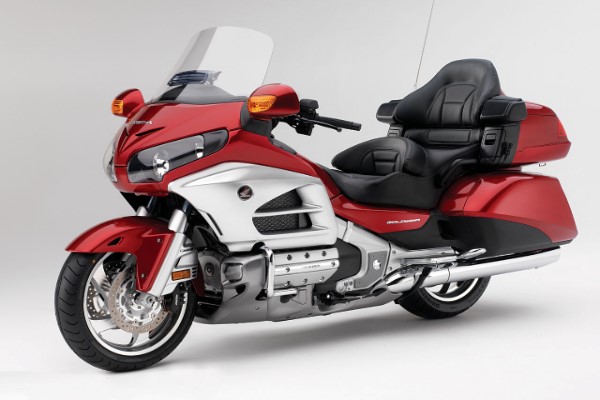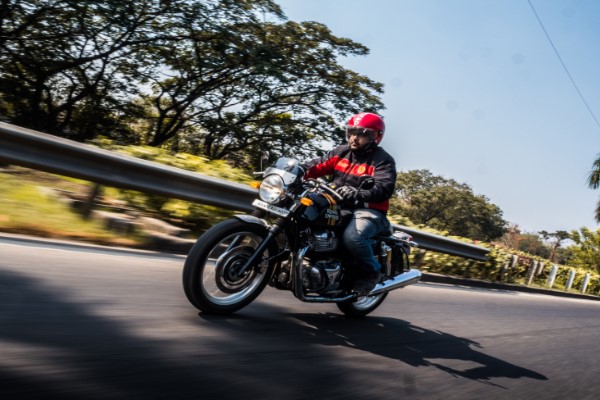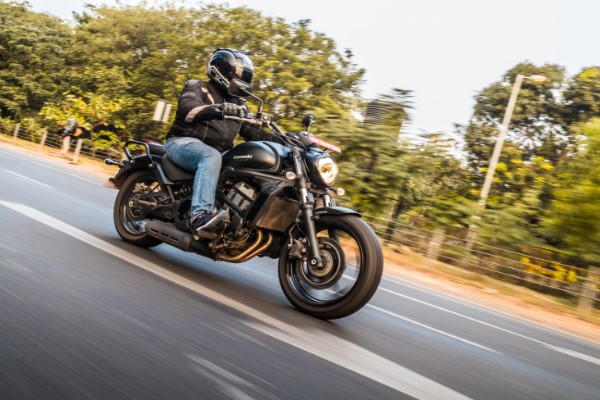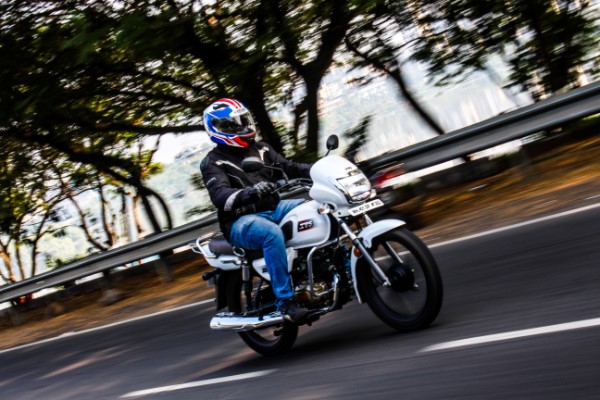Royal Enfield added two limited edition bikes to its line-up – the Classic Chrome and Desert Storm. The Classic series has been a runaway success story for Royal Enfield since its launch in November 2009 - the veteran motorcycle maker had to increase capacity to try and meet demand. Royal Enfield’s latest bikes then have a lot to prove. In this review, we get astride on of the two new bikes, the Desert Storm.
On the outside
That trademark, retro aura of Enfield bikes remains thanks to its gleaming spokes, chrome-rimmed wheels and flowing, steel mudguards. The Desert Storm’s matte sand colour does well to embellish this. Its metal-encased telescopic forks lead to a bright, hooded headlight, sticking out from a Royal Enfield trademark steering head. The instruments look familiar - Royal Enfield stuck to basic analogue with its reading going up to 160kph. There’s no fuel gauge but there’s a reserve warning icon instead. The bike’s circular, chrome mirrors look the part but tend to vibrate a fair bit when you’re riding – this hampers rear-view vision. The bike’s rider-friendly soft and comfortable palm grips are a boon on a long ride.
The switchgear feels solid and the bike comes equipped with twin horns. The latest Classic’s design features a teardrop-shaped fuel tank with the Royal Enfield logo emblazoned in a regal font. The Storm feature an old-fashioned chrome tank cap and knee-pads; it even has tool and air boxes on the flanks. The large, naked engine, which displays good attention to detail, is fitted with crankcase blisters that are inspired by the Spitfire fighter aircraft of World War II, according to the company.
Walk to the rear and you’ll notice the uncluttered rear sections and smoothly flowing mudguards leading to the tail-light. While overall quality and finish do seem slightly improved, they still lag aren’t as good as most modern Indian bikes.
Power Torque
The Storm features an improved, 499cc, air-cooled, four-stroke and single-cylinder new-generation Royal Enfield engine. The engine makes peak power of 27.5hp at 5250rpm and 41Nm of max torque is delivered at 4000rpm.
From the saddle
Start the bike up and you instantly hear that lazy, healthy and loud beat Indians have long admired and appreciated. This isn’t a bike that’s about brisk performance – ride it in an unhurried manner while cautiously short-shifting through the one-down, four-up pattern. Holding cruising speeds of up to 110kph is effortless, beyond which the Storm does start to feel strained. Spread of power is wide, with an ample low and mid-range kick. The Storm’s throttle responds with its trademark lazy, rhythmic feel that Royal Enfields are renowned for. Performance is much the same as earlier, the Desert Storm zipping past 60kph in around four seconds, while managing to hit a true top speed of 130kph.
The bike has a comfortable and commanding upright riding posture, and the newly sprung seat is certainly a big improvement. Straightline stability is rock solid, and the Storm handles corners pretty well. The steering feels a tad heavier than you’d have liked but is neutral and precise, with good ride quality keeping the rider comfortable over most road surfaces. The brakes feel more reassuring now, thanks to the new front suspension with a 280mm disc in the front and a 153mm drum unit at rear.
Is it worth the money?
This bike does add fresh appeal to the Classic line-up but Royal Enfield must step up the pace, and quickly improve its motorcycles to meet Harley standards. It needs to ensure it retains all the old-world charm and charisma that are its selling points, while simultaneously incorporating a lighter, more contemporary and reliable feel Indian bikers will soon have access to in this segment.
